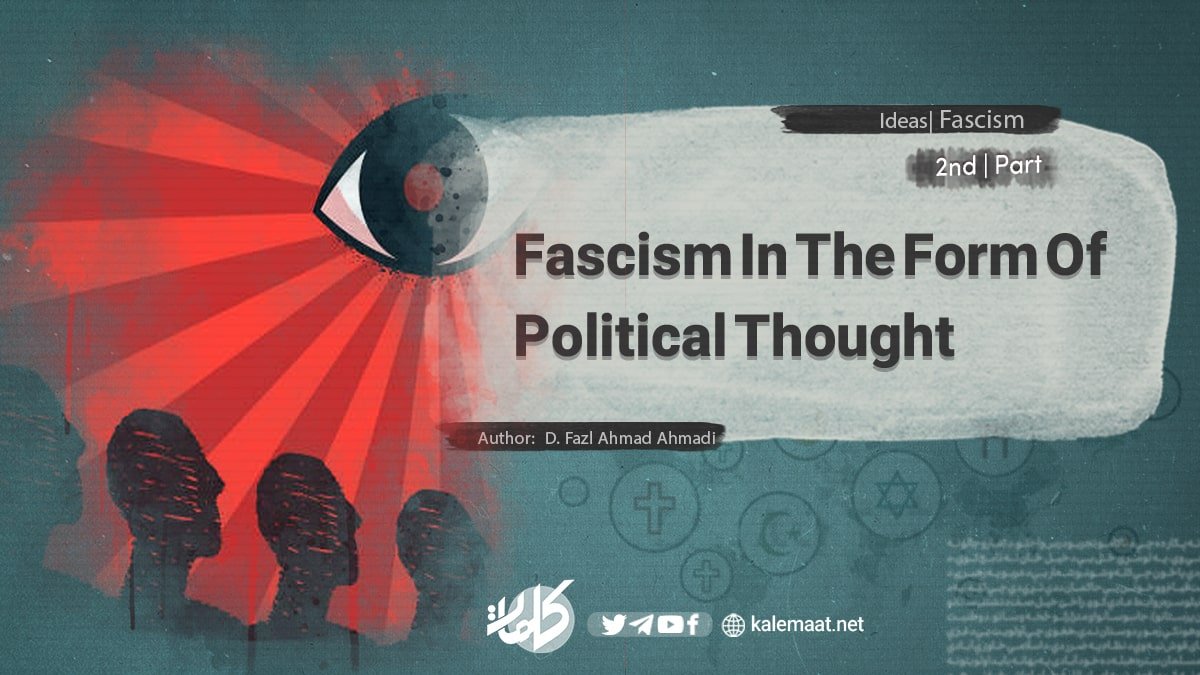
Author: Dr. Fazl Ahmad Ahmadi
Fascism in the form of Political Thought (2nd Part)
1. The concept of Politics and Political Thought
The word “politics” (French: “politique”) is derived from the Greek word “polis,” which means city or “city-state.” The first political ideas emerged in the polis or city-states of ancient Greece, which were politically independent and, unlike in the previous era, were economically self-sufficient to a large extent. Therefore, the unit of political organization in ancient Greece is recognized as a unit of political-economic organization. City governance took the form of either democracy or oligarchy. The city of Athens, an outstanding cultural and educational center, was known as a manifestation of democracy, although this democracy never fully flourished. In contrast, Sparta was another Greek city-state that, unlike Athens, had a harsh and militaristic society, governed oligarchically and focused primarily on military power.
However, regardless of the type of traditional government, women were deprived of political rights, and resident aliens, Mamluk villagers, and purchased slaves were not considered genuine citizens. Therefore, the most extreme form of democracy in ancient Greece, compared to contemporary democracy, was actually an oligarchy. These city-states felt a cultural kinship with one another and considered themselves part of the Hellenic race. However, a war broke out between Athens and Sparta, known as the “Peloponnesian War,” which ended after many years in 404 BC with Sparta’s victory. According to the Greeks, in addition to war, stasis—which meant insurrection and internal rebellion—shook the unity of the city government.
Regarding political thought among different writers, various terms have been proposed, ranging from “political philosophy” to “political theory.” Regardless of the differences in nomenclature, what these approaches share is the treatment of political thought as an endeavor that seeks to prescribe a suitable situation for the collective life of humans. As a result, despite differing opinions about the components of political thought, they all emphasize one fundamental aspect: the normative importance of presenting a favorable political and social system in the formation of political thought.
Leo Strauss, in the book “What is political philosophy?” It emphasizes that political philosophy, first of all, is connected with “practice”; But the action itself is again linked to “perception”. Leo Strauss says: “Every political act is done either with the intention of changing the status quo or with the goal of maintaining it”; But he sees the change itself as a result of our “understanding” of the concept of “good” or “good”. Since our perception of these concepts, in the beginning, is nothing more than a guess, it seems necessary to pass from this illusion and reach “knowledge” about it. He believes that “if this orientation towards good is specified and if people set their explicit goal to gain knowledge about a good life and a good society, political philosophy will emerge. Political philosophy seeks to know the “nature of political affairs” and “good and correct political order” at the same time, and therefore it is a normative knowledge. By understanding this fact, political thought also has moral motivations that place him in the role of an “enlightened and patriotic citizen” who lacks personal interests. In other words, political analysis includes basically ethical, prescriptive and normative issues and deals more with what should be created, not with what is. Usually, Plato and Aristotle are considered the founders of this tradition…
Continues…



